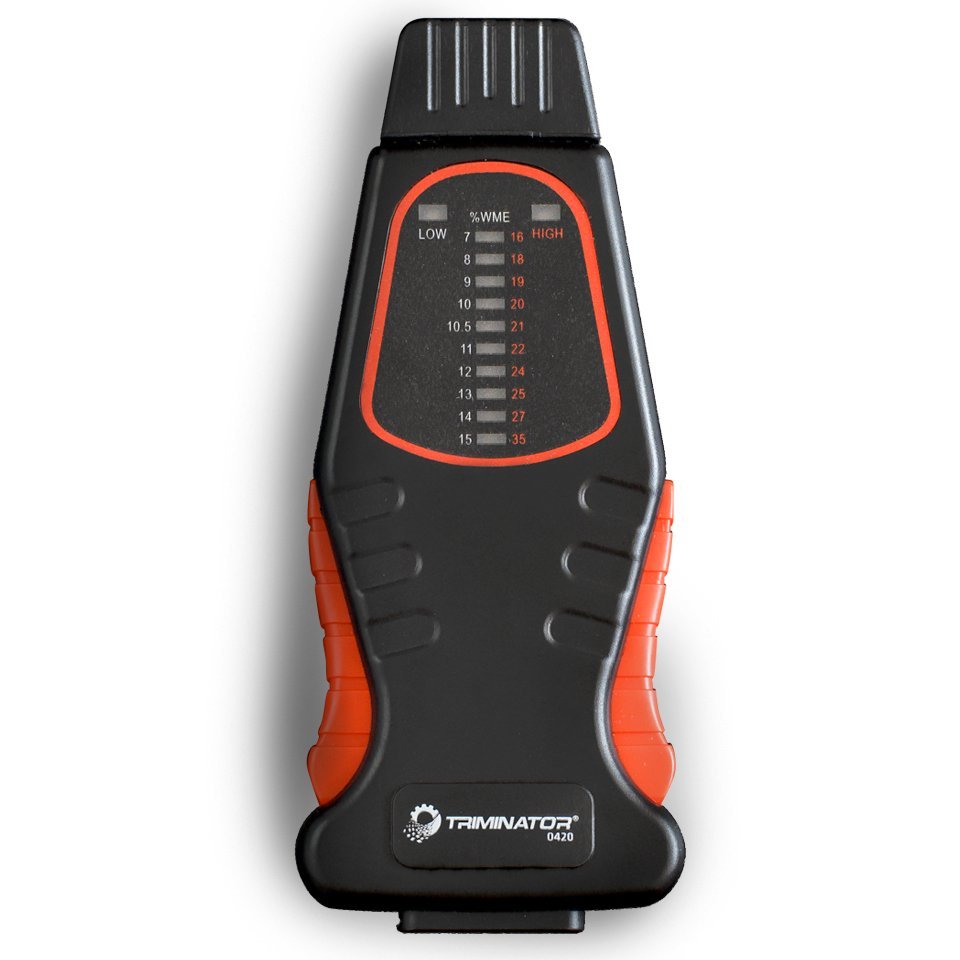Why Every Property Owner Requirements a Moisture Meter: Secret Benefits and Functions
Why Every Property Owner Requirements a Moisture Meter: Secret Benefits and Functions
Blog Article
The Ultimate Guide to Moisture Meters: A Comprehensive Review and Just How They Can Save You Money
Moisture meters offer as essential devices in discovering and keeping track of moisture content in materials, assisting in protecting against costly damages and making certain the high quality of products. Understanding the nuances of different kinds of wetness meters, their applications, and the prospective cost-saving advantages they provide can be a game-changer for businesses and experts alike.
Kinds of Moisture Meters
Various kinds of wetness meters are readily available for various applications in various industries. One typical kind is the pin-type wetness meter, which gauges the electric resistance in between 2 pins inserted right into a material. This type is suitable for timber, drywall, and various other building products. Pinless wetness meters, on the other hand, use electro-magnetic sensing unit plates to check a bigger location without causing damage to the product's surface area. Moisture Meter. These meters are ideal for promptly examining dampness degrees in huge locations such as walls and floorings.

Additionally, there are likewise specialized wetness meters created for specific products like dirt, grain, or hay. These meters offer precise moisture analyses tailored to the distinct residential properties of the material being examined. Infrared moisture meters determine the thermal residential or commercial properties of a material to identify its moisture content non-invasively, making them beneficial for applications where pin or pinless meters might not appropriate. Understanding the different kinds of moisture meters offered can aid markets pick one of the most ideal device for their certain moisture measurement requirements.

Benefits of Using Wetness Meters
Moisture meters offer invaluable benefits in accurately evaluating and checking dampness degrees in varied products and environments. One of the primary benefits of making use of wetness meters is the prevention of potential damage created by excess moisture.
In addition, utilizing moisture meters can lead to raised energy efficiency. By identifying locations with high moisture degrees, such as leakages or inadequate insulation, adjustments can be made to improve energy preservation and minimize energy expenses. In agricultural settings, moisture meters play a critical duty in enhancing crop returns by making it possible for farmers to keep an eye on soil dampness degrees and make educated irrigation decisions. On the whole, the advantages of making use of moisture meters span throughout numerous sectors, providing economical solutions and advertising better quality control techniques.
How to Select the Right Dampness Meter
When selecting a moisture meter, it's essential to guarantee that the meter is ideal for the certain product you will be testing. Different products have differing electric residential or commercial properties that can affect dampness readings, so selecting a meter developed for your product is critical for precise outcomes. By thoroughly examining these elements, you can choose a dampness meter that satisfies your demands and offers exact dampness measurements for your projects.
Proper Strategies for Dampness Meter Use

Cost Financial Savings Via Dampness Meter Applications
Exactly how can the critical utilization of dampness meters bring about significant price financial savings across various sectors? Dampness meters play a vital role in cost financial savings by protecting against possible damage and ensuring high quality control in different sectors. In the farming sector, wetness meters help in identifying the optimum time for harvesting crops, stopping excess or over-drying moisture that can influence the last item's top quality. This accurate monitoring helps farmers avoid unneeded losses and optimize their return.
Likewise, in construction, moisture meters assist avoid costly problems by finding dampness degrees in structure materials, such as timber or concrete, which can lead to structural problems otherwise resolved promptly. By identifying issue locations early, specialists can take restorative measures to prevent comprehensive fixings or substitutes, inevitably saving time and money.
Additionally, in the food processing sector, wetness meters are crucial for keeping an eye on product top quality and making sure conformity with safety and security laws. By accurately measuring wetness material in food, makers can prevent putridity, maintain freshness, and lower waste, causing substantial price financial savings. On the whole, the tactical application of moisture meters is a beneficial investment that can lead to substantial price decreases and improved efficiency across various sectors.
Verdict
In verdict, moisture meters are useful tools for determining and detecting wetness levels in different materials. By utilizing the right dampness meter and complying with appropriate techniques, users can effectively avoid expensive damages caused by excess moisture.
Wetness meters serve as indispensable devices in discovering and keeping an eye on moisture content Look At This in products, helping in stopping pricey damages and making certain the high quality of items. Infrared moisture meters measure the thermal properties of a product to identify its moisture material non-invasively, making them helpful for applications where pin or pinless meters may not be appropriate.Wetness meters use very useful benefits in precisely monitoring and examining moisture degrees in blog here diverse products and atmospheres. In farming setups, moisture meters play an essential role in optimizing crop returns by allowing farmers to keep an eye on soil wetness degrees and make notified irrigation choices.In verdict, dampness meters are beneficial devices for measuring and finding moisture levels in various materials.
Report this page